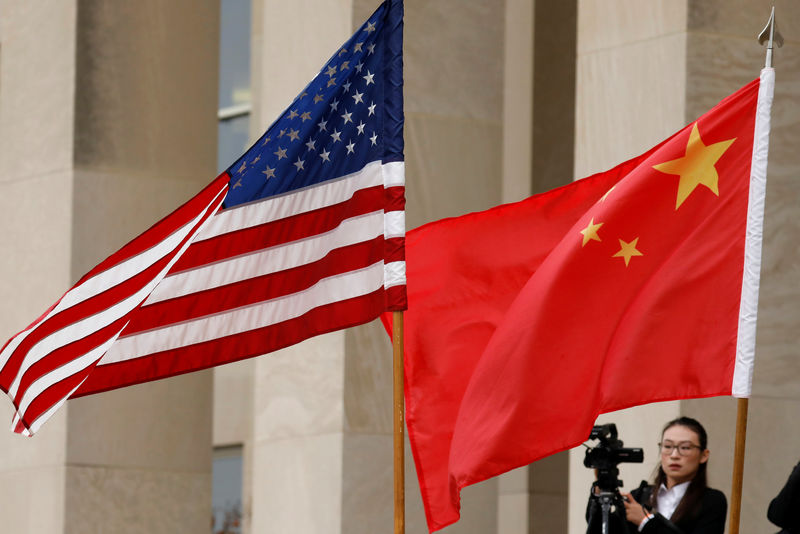By Alexandra Alper and David Lawder
WASHINGTON (Reuters) - American negotiators locked in trade talks with China are likely to win more access to the country's cloud computing market than initially expected, but Chinese commitments to curb industrial subsidies will probably fall short of U.S. demands, a U.S. Chamber of Commerce official said on Thursday.
In March, media reported that as part of trade negotiations, China would allow U.S. cloud computing companies access to China's fast-growing market through special Chinese free trade zones, giving the companies a limited toehold in the world's second largest economy.
"We expect greater market access opening than was initially provided by the Chinese in these negotiations, which was through a pilot zone," Myron Brilliant, executive vice president and head of international affairs at the U.S. Chamber of Commerce, told reporters on a conference call.
He said the lobbying group wants to ensure that U.S. cloud companies are able to get licenses and have management control and guaranteed free flow of data across borders.
"It is not clear we will get as much as we would like in that area, but we're going to continue to make this an issue that has to be addressed ultimately, if not in the negotiations, then shortly after," Brilliant said.
WASHINGTON TALKS
Brilliant's comments came after U.S. Trade Representative Robert Lighthizer and U.S. Treasury Secretary Steve Mnuchin concluded two days of talks in Beijing aimed at ending a 10-month tariff war that has cost both sides billions of dollars in exports, disrupted supply chains and roiled financial markets.
Chinese Vice Premier Liu He is due in Washington next week for another round of talks, which Brilliant said were in the "endgame."
Mnuchin called the Beijing talks "productive," but the Trump administration has said little else about them.
The United States has been pressing China for sweeping changes to policies that Washington says encourage theft of American intellectual property and force transfers of U.S. technology to Chinese companies.
Brilliant said that curbing China's massive subsidies for steel and a host of other industries is a priority for U.S. businesses, but the deal is unlikely to provide a major shift in Beijing's practices in that area.
"We're likely to get some language that ... touches on transparency, but we're not likely to get the commitment that we want eventually from the Chinese in terms of their really cutting back and eliminating subsidy practices," he said
Reuters reported last month that American negotiators have tempered demands that China curb industrial subsidies as a condition for a trade deal after strong resistance from Beijing, marking a retreat on a core U.S. objective for the trade talks.
TARIFF REMOVAL
Much speculation has also centered on how much, if any, of the U.S. and Chinese tariffs will be removed as part of a deal. A person familiar with the negotiations said that it was likely that some tariffs would remain in place, serving as part of the enforcement mechanism to ensure that China keeps its commitments. They would be removed as China meets certain implementation benchmarks, the person said.
Brilliant said the decision on the tariffs will be ultimately up to U.S. President Donald Trump and Chinese President Xi Jinping. He added that an enforcement mechanism for the agreement might include a "tie-in to tariffs."

Trump has said he would host Xi at the White House, a meeting that could be used to cement an agreement.